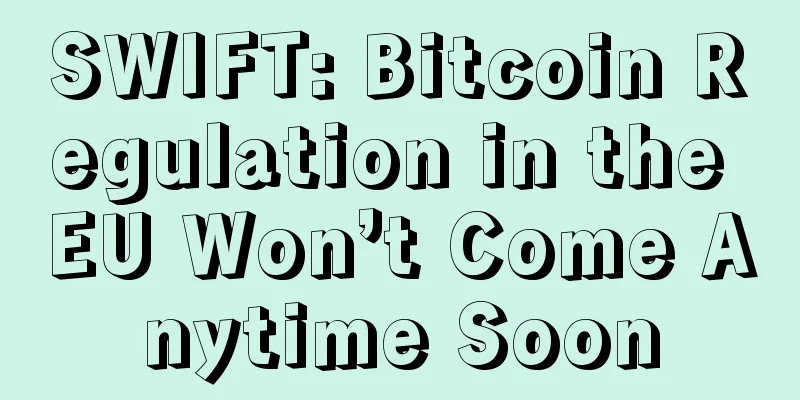SWIFT: Bitcoin Regulation in the EU Won’t Come Anytime Soon

|
According to a new report from the Society for Worldwide Interbank Financial Telecommunication (SWIFT), it will take many years for the European Union (EU) to achieve a unified framework for cryptocurrency regulation. The report states that there is a lack of compelling reasons to include virtual currencies in the EU’s existing legal framework, set out through the revised Payment Services Directive (PSD2) and the Fourth European Anti-Money Laundering Directive (AMLD4). PSD2 was approved by the European Union in October this year and consists of a new set of consumer payment protection rules aimed at promoting the development and use of innovative online and mobile payments. Meanwhile, the AMLD4 that has been produced is consistent with the recommendations issued by the Financial Action Task Force (FAFT) in 2012 to strengthen the EU’s anti-money laundering (AML) and counter-terrorist financing (CTF) laws. The report states: “The recent legislative process for AMLD4 and PSD2 has not paid sufficient attention to this development and has generally not addressed virtual currencies. While AMLD4 may be interpreted as extending to virtual currencies, the precise extent to which this will succeed in preventing their misuse for anti-money laundering and terrorism financing purposes remains to be seen.” “Third, future legislation, such as the potential EMD3, remains a development to be closely monitored,” the report states, adding: “However, in order to extend the potential new legislative framework from e-money to virtual currencies, the concept of e-money would require a fundamental reconfiguration.” As multi-purpose prepaid cards begin to lose ground and web-based money services move closer to payment services, the original purpose of the e-money framework is rapidly losing its relevance. “Redefining the definition of virtual currencies could breathe new life into the concept and expand the legal framework to include recent developments such as cryptocurrencies,” the report reads. The SWIFT Association, an organization established by SWIFT to fund its own research, has already started separate research activities on bitcoin and blockchain technology, receiving grants last July. According to the organization, the new working paper is intended to provide recommendations for financial practitioners and regulators.
|
<<: Kleiner Perkins: Five reasons to invest in blockchain
>>: SWIFT: Bitcoin Regulation in the EU Won’t Come Anytime Soon
Recommend
What are the characteristics of the success line in palmistry?
1. There are two lines of success If you have two...
Judging Luck from Hair and Body Hair
Hair refers to the hair that grows on the head. H...
People whose ears are higher than their eyebrows are wise.
Physiognomy is a subject that involves numerology...
Will a man with a broken eyebrow succeed in starting his own business?
The original intention of starting a business is,...
The faces that you must avoid when choosing a buffet for a friend gathering
When friends get together, although some people c...
Analysis of the five characteristics of unlucky women
Some facial features represent good fortune, while...
Indian government and Singapore central bank sign agreement to promote financial technology innovation in blockchain and digital payments
Andhra Pradesh, a state in southern India, has an...
What is the fate of a person with a full forehead? Is the fate of a person with a full forehead good?
People with full foreheads have broad minds. If a...
The face of a man who is unwilling to be lonely after marriage
The face of a man who is unwilling to be lonely a...
EOS insider: I want to leave
In 2020, apart from a few pieces of news that wer...
What kind of men are smart and capable, suitable for starting a business?
Not everyone is suitable for this great and diffi...
Rakuten surveys earn money and points to exchange for cash rewards
As a professional market research tool under the ...
Japan's Bitcoin industry is experiencing explosive growth again, and more than 10 companies will launch new exchanges
More than 10 Japanese companies are reportedly se...
[3X win-win situation is extremely visible] Shenma invites you to enjoy the M30 new product global online launch conference
In December 2019, the new generation of Shemma M3...
Crypto Analyst Says Bitcoin ETF Demand May Rise
Young Ju pointed out that the on-chain cost basis...









